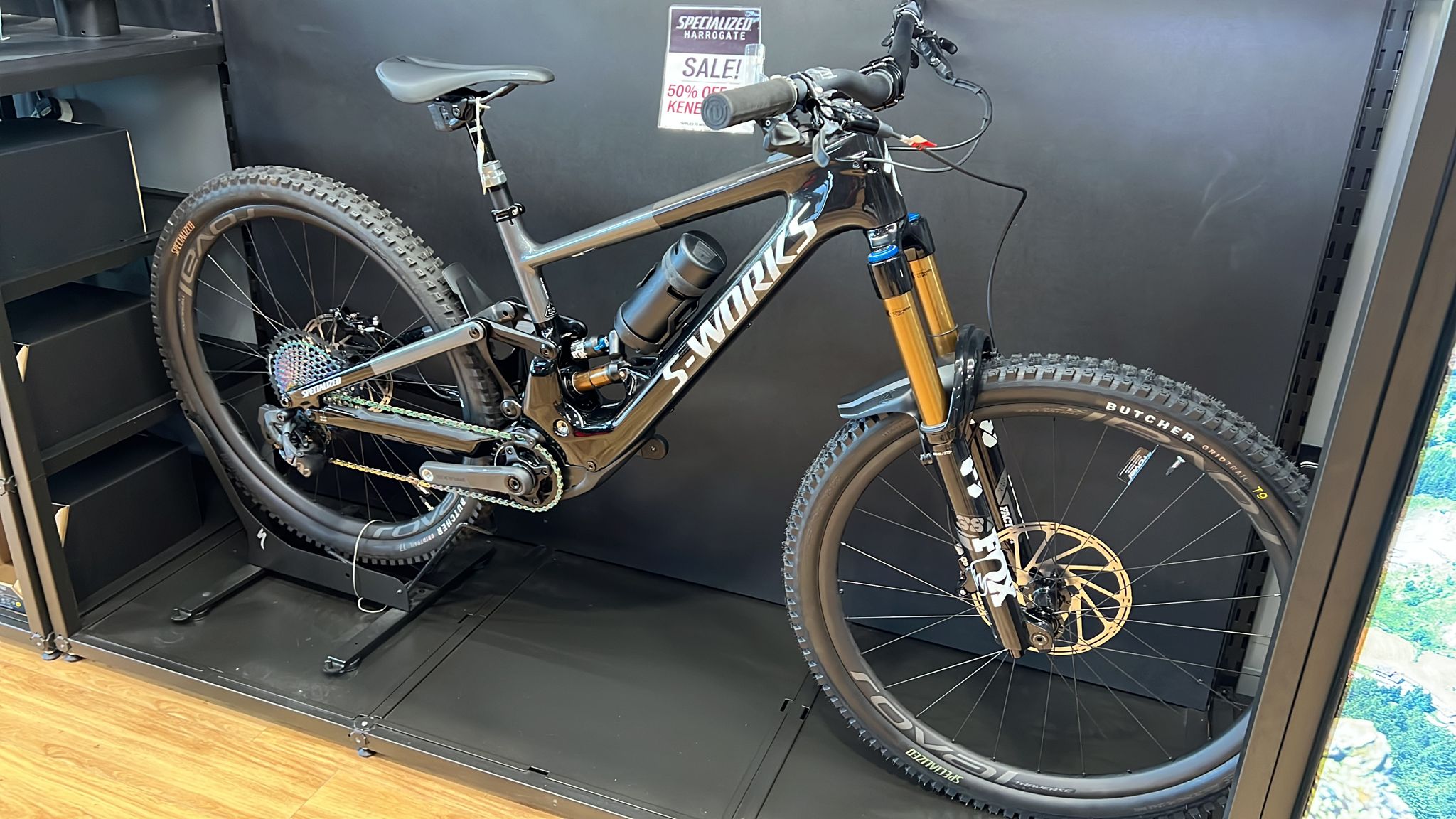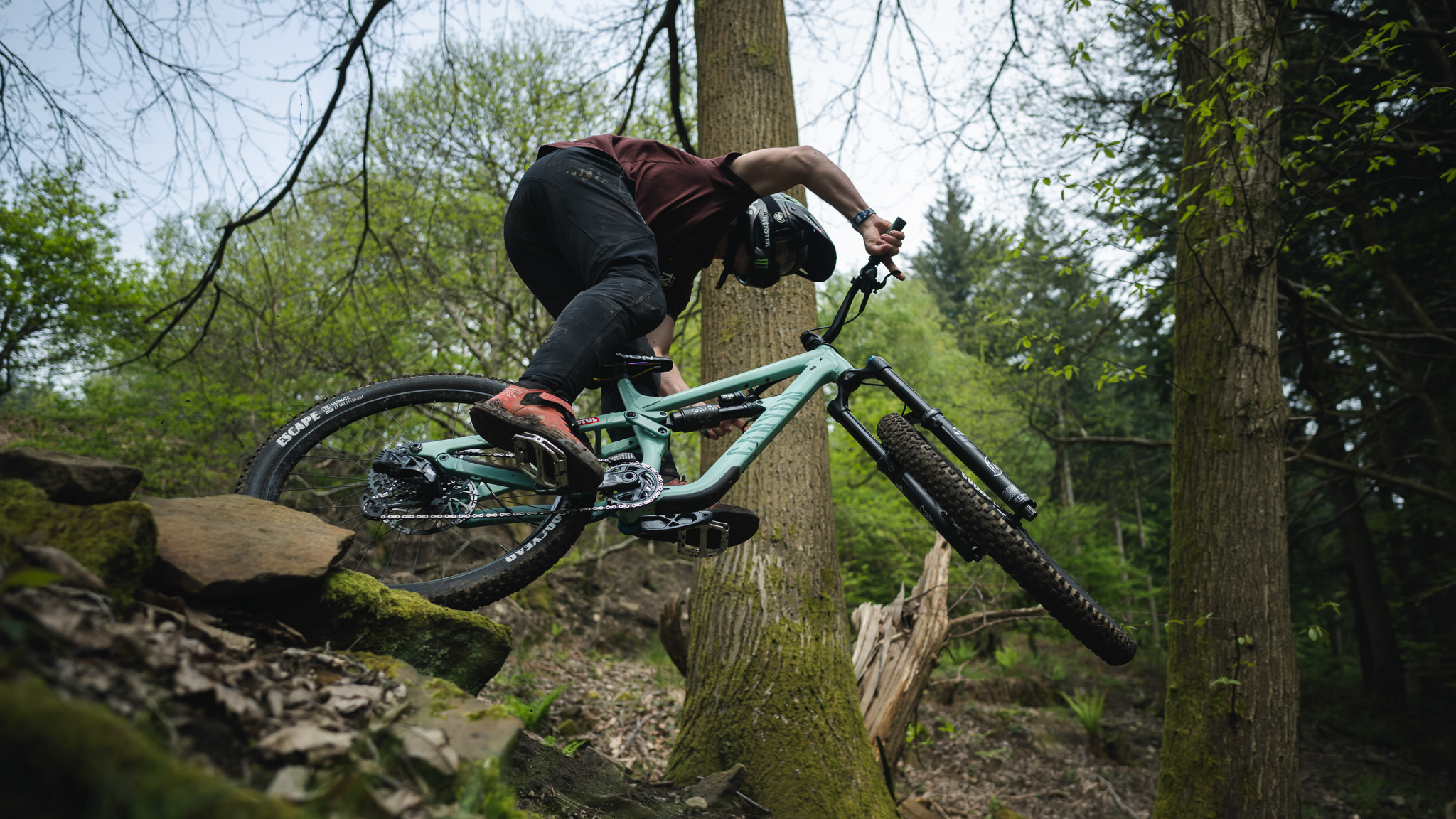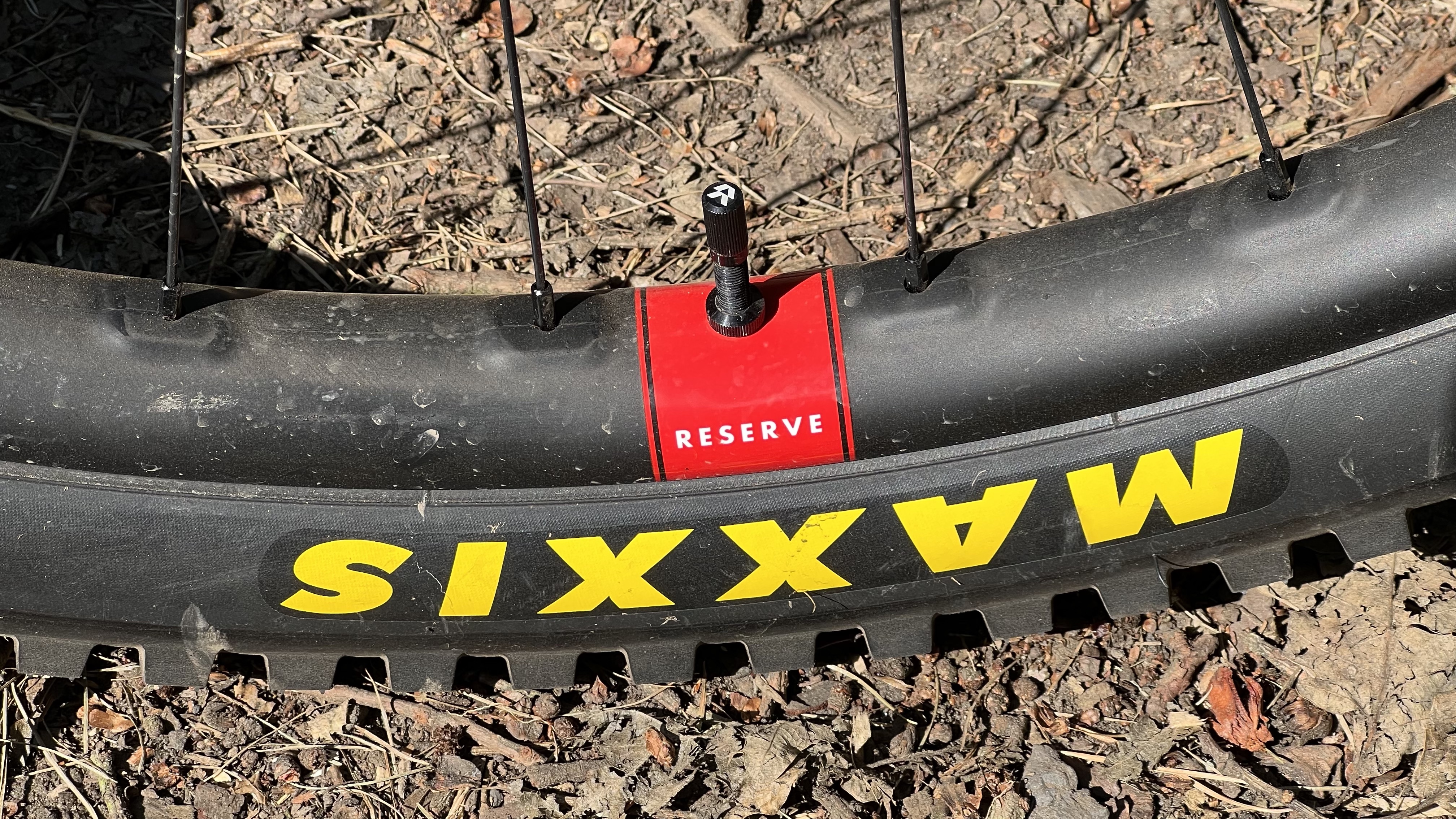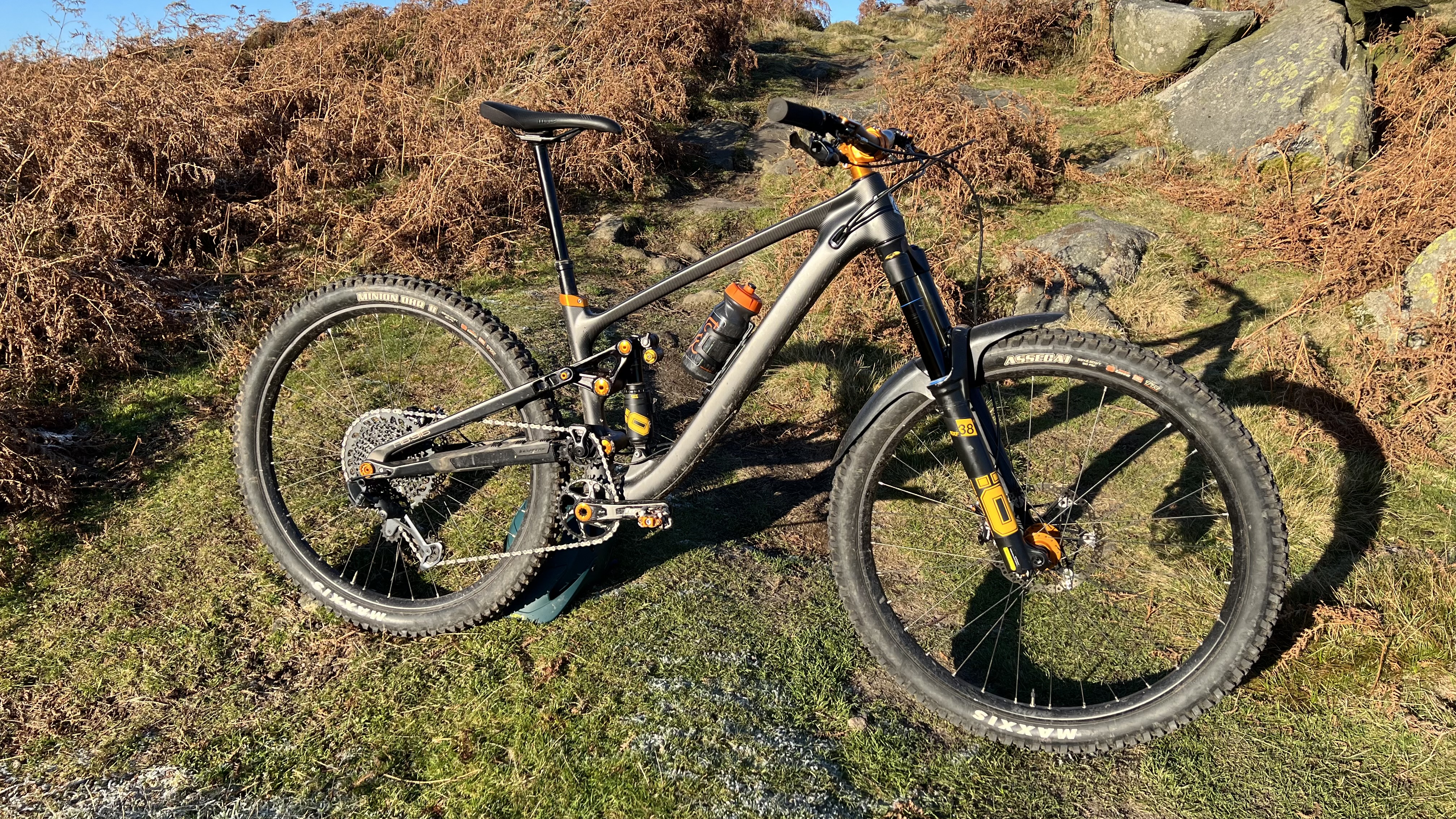
I was bought up hearing the great old phrase, “They know the price of everything, but the value of nowt” about less than prudent folk on a regular basis. The current cost cutting situation going on in the bike industry got me thinking a lot about that wisdom. Especially after listening to some random riders I bumped into this weekend talking about buying a £13,500 Specialized S-Works Kenevo SL for ‘just’ £6,000. So while deals like that might seem a massive win for your wallet are they necessarily a win for your riding? And how much should we think about the bigger picture behind ‘bargains’ when it comes to the future of our fun?
Cravings for savings
There’s no doubt most of us are suckers for a saving and retailers know that a red sticker for reductions or yellow for a 'must go', will grab our attention before we start checking the details of what it’s attached to. I’m certainly not fussy about scavenging basic grocery items from the ‘brink of best before’ bins if I know the family will have eaten them before they actually turn blue.
Most websites are configured to show us ‘bargains’ and there’s now a whole online industry built around Black Friday and it’s online friend Cyber Monday. In fact, most online brands like Canyon, YT, Vitus etc. have bought their way into market share by passing on the savings they’ve created by skipping the ‘real shop’ part of the selling process. That’s not to say they don’t now offer brilliantly designed, cost effective kit but it’s comparative costs that are the initial draw compared to buying from your local shop. Other onliners like Planet-X, Chain Reaction, Wiggle, Sportspursuit etc. mix a ‘pile it high, sell it cheap’ policy on anything they can scavenge for a good price with selling a core range of their own products. Big shops like Evans, Halfords, Tredz, Wheelbase and others use their bulk buying power to score discounts they pass on to customers via prices that aren’t sustainable for smaller shops.

The true costs
There are many problems with getting fixated on savings though. Firstly, it’s easy to lose sight of whether the product is actually any good for what you want to do. I’m not saying that the Specialized Kenevo SL isn’t an awesome bike if you want a relatively light weight self shuttle machine, but you might be a lot better off – in riding terms – paying almost full price for a more versatile, shorter travel but bigger power, better range Levo. Also what’s the reason they’re being sold off cheap? Maybe it’s just still post Covid overstocking, but what if a new version is about to appear and make the current one outdated in a significant way? Or will it be a change that might not matter to you. Like the addition of internal storage or a change in geometry by a degree and/or few mm of suspension travel or top tube reach on a bike that rides fine anyway. You might even prefer the version before (see RockShox Lyrik or pre ‘free stroke adjust’ Shimano brakes for details) in which case getting an older model cheap is a double win.
Unfortunately costs are sometimes saved at the expense of the customer elsewhere. That can vary from a long wait to get a call/email answered or the return of a product overseas, but sometimes that might mean no reply at all. Amongst all the happy worldwide web shoppers there are plenty of cases of lights bought from the likes of Ali Express catching fire when recharging, or lookalikes of premium carbon fiber frames turning out to be potentially lethal, mostly glass fiber mess when the post crack and crash investigation is done.
That’s certainly not always the case though and online uber-brand Canyon have a very diligent product checking process and UK brands like Cotic, Mason, Bird and others have excellent ‘above and beyond’ customer care reps despite being direct sell setups.

Value beats savings
That value added by excellent customer service should never be forgotten either. Hope Technology already had a fantastic reputation for bending over backwards to helping out customers with repairs on ancient products and emergency mechanic support at the numerous events they supported. The fact they refunded early buyers of their first carbon bike a full £2,000 when it turned out to be cheaper to make than they thought is the stuff of legend though. They offer the 3D-printer files to make your own servicing tools if you don’t want to buy them and their in-house manufacturing, anodizing and local materials sourcing strategy has been well ahead of the eco curve for decades. Other brands keep parts in their inventory long after models have been retired. They spec better quality bearings as standard and/or offer lifetime warranties on suspension hardware. They use designs that can be altered to different travel or wheel configurations to add future proofing or make geometry adjustable so you can adapt the handling to match how your riding changes. Even steel chainrings (good) or down-specced chains and cassettes (bad) can make initial ‘savings’ turn out more expensive in the long run.
Built-in longevity isn’t just a hard goods issue either, clothing and accessory brands like Endura, Rab, Apidura and Alpkit in the UK, and Ortlieb, Patagonia, 7Mesh, PNW and others globally, go the extra mile with customer support, repairs and replacements as well.
Warranties vary dramatically not only in their scope but in how well companies actually honor them too. So while companies like Santa Cruz and Specialized have a great reputation for sorting out riders as fast as possible, others are often guilty of using small print or just straight up ghosting people to avoid helping them out. So again, remember that when you start comparing ‘like for like’ pricing on products, it might not actually be anything of the sort once you factor in the potential costs and complication across the lifetime of you owning something.
Paying more for something might not just buy you a better designed, better performing product or better service. It might also create a better environment to ride it in. Hold up on your hurry to load up your best price basket and look what the seller or manufacturer are doing in terms of advocacy, trail building, sustainable production, eco sourcing. Don’t forget how much rider and event support, race team sponsorship, amusing ads, interesting edits, thoughtful film projects, supporting mags and websites etc. add to your day either and remember that they’re all an investment that companies don’t have to make.
Even if they don’t have banners at races or a TikTok account, local shops crewed by passionate riders are what keep the heart of mountain biking beating on a day to day basis. Bodging a solution from the mess of incompatible parts you ordered online ‘cheap’ or setting up that direct sell ‘bargain’ bike that no amount of YouTube ‘how to's’ have magically sorted for you. Having the expertise and spares to sort out an emergency repair that saves your weekend / holiday / event. Organising group rides, kid's clubs or tech training sessions. Being somewhere you can actually see, sit on or touch bikes and components and try on clothes to see if they’ll work for you. Things that might add a small cost but also has a huge value that you need to remember before you start using phrases like ‘price matching’ or ‘how much for cash’.

Save to survive, invest to progress
As is often the case with this column, I’ve meandered all over the place here, but the point I’m trying to make is this. While paying the minimum for something is always tempting – particularly right now when money is much tighter for most of us – it might not be the best idea. That can mean it’s not the right product for you or a product that hasn’t sold at full price for a very good reason. Or maybe it’s cheap because it’s being sold by a company that doesn’t invest in the sustainability of our sport from an eco or growth point of view, or in sorting out their customers if there’s a problem.
And while your life is obviously yours to live how you want, if we can all try and strike a balance of saving where it works without screwing over the people who really enrich our world, then hopefully things will work out better long term.







